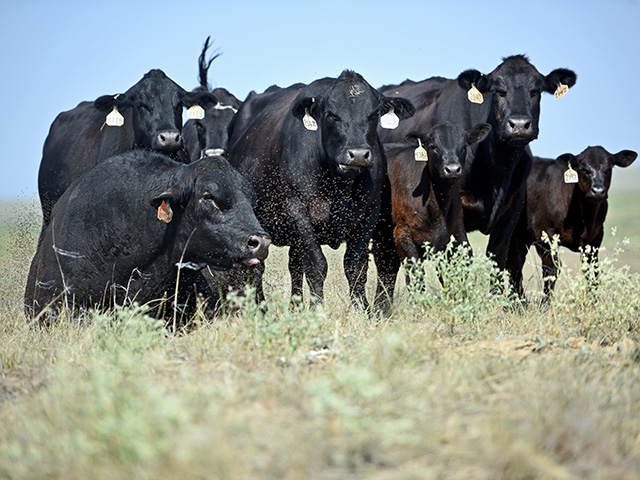Ask the Vet
Anaplasmosis Management Takes a Team Approach
READER: We have a cow that checked PCR positive for anaplasmosis. We treated her with antibiotics, and she appears to be fully recovered. After she weans her calf, should we sell her? We don't know if she's likely to contract anaplasmosis again or if she poses a threat to her herd mates.
Dr. McMillan: This cow is almost certainly a carrier, and she will not likely ever show signs of the disease. But, as a carrier, she is a definite risk to other cattle.
I am not sure whether anaplasmosis is considered endemic in your area. If it is, you need a plan possibly with ongoing treatment. That is a decision to make with your herd veterinarian. I also do not know how many cows you own or if you are "fence to fence" with other herds. This, too, can affect how you handle anaplasmosis. You can probably tell what I'm saying is there is no across-the-board best answer for how to handle this.
I do advise checking your entire herd to determine its status. That is Step 1. Other standard recommendations that will not change include the use of a clean needle with each injection, as well as the cleaning of all surgical instruments (tattoo pliers, castration tools, dehorners) between each use. Anaplasmosis is a blood-borne disease, which is why it's so important to take these steps when working cattle to avoid spreading it within your herd.
This is also why tick and biting fly control is important. Both of these pests can be significant sources of anaplasmosis transmission, but because ticks are a biological vector, they are an especially common mode of transmission. So, make sure your management is on target for these pests to avoid additional problems.
P[L1] D[0x0] M[300x250] OOP[F] ADUNIT[] T[]
Lastly, be very cautious when introducing new cattle to the herd. While your cows may be carriers and show little ill effect from the condition, they could infect a new herd member, causing serious illness that could lead to the loss of that animal.
READER: My cows just started eating the bark off my trees? Why are they doing this?
Dr. McMillan: This behavior actually has a name, pica. It refers to the habit of eating something not normally considered food, and it can occur in all animals. One of my favorite episodes of that classic sitcom "M*A*S*H" was when Klinger decided to eat a Jeep in his continuous attempt to get out of the army. I guess you could call that pica.
Some researchers believe when cattle do this, it's due to some sort of nutrient imbalance. Cattle on lush pastures, for example, may be deficient in fiber the rumen needs for proper functioning. Some mineral deficiencies, including those tied to low phosphorus, potassium, copper and magnesium consumption, have been linked to pica. Even low-protein diets have been looked at as the culprit.
So, what does bark have going for it? It is high in fiber, and it does contain minerals and protein. So, there's the possibility your cattle are low in these areas.
A good first step is to evaluate your herd nutritional program. This is going to be key to peak performance and profitability in any herd. If cattle are thin, they may need supplemental feed for additional energy, and/or they may need additional protein.
Cattle also must have a balanced mineral program. A trace mineral block is not adequate. Minerals can be supplied a few different ways; most commonly, they are in supplemental feed, in lick tubs or probably loose minerals in some type of feeder.
It's not enough to just supply minerals; you need to be sure the cattle are consuming them. So, think about palatability when choosing a mineral, as well as how well it fares out in the elements.
And, while those are all of the scientific reasons cattle will eat bark off of trees, there's one more: In some cases, I am convinced cows just get bored. This can simply be a bad habit but one that cows can teach each other.
> Please contact your veterinarian with questions pertaining to the health of your herd. Every operation is unique, and the information in this column does not pertain to all situations. This is not intended as medical advice but is purely for informational purposes.
> Write Dr. Ken McMillan at Ask The Vet, 2204 Lakeshore Dr., Suite 415, Birmingham, AL 35209, or email vet@progressivefarmer.com.
[PF_0720]
(c) Copyright 2020 DTN, LLC. All rights reserved.




